If you're considering a deferral for your university course, you're not alone; many students find themselves in need of a little extra time for various reasons. Whether it's personal challenges, health issues, or even wanting to gain work experience before diving into academics, understanding the process is crucial. Crafting a well-structured letter that clearly outlines your request can make all the difference in ensuring a smooth transition. Curious about how to effectively communicate your needs and secure that deferral? Read on for a detailed guide!

Student identification details
Deferring a university course requires careful communication of essential student identification details. Student identification number (unique to the individual), name (full legal name as registered), date of birth (to verify identity), course name (specific title of the enrolled program), and enrollment year (academic year of the initial registration) should be clearly presented. Additionally, including the university's name (institution's official title), program code (if applicable), and contact information (phone number and email address for correspondence) is crucial for effective processing. Precise and accurate articulation of these details ensures smooth navigation through the deferral process.
Course and semester details
Deferring a university course, such as a Bachelor of Arts in Psychology (2023/2024), involves communication with the registrar's office or academic advisor. Students may request a semester deferral, particularly for the Fall 2024 term, due to personal circumstances like health issues or family emergencies. Required information typically includes student identification numbers, contact information, and detailed reasoning for the request. Important dates, like the deadline for submitting deferral requests, must also be noted as they vary by institution. Additionally, familiarizing oneself with university policies on course registration and deferral procedures is essential to ensure compliance and a smooth transition to the next semester.
Reason for deferral request
A university course deferral request often arises from significant personal circumstances that impact academic performance. For instance, medical issues such as a severe illness diagnosed by a healthcare professional may necessitate a break. Additionally, familial responsibilities, such as caring for a dependent family member, can create a need for deferral. Financial hardships, perhaps due to unexpected job loss or significant expenses, may also hinder the ability to engage fully in coursework. Mental health challenges, including anxiety or depression, supported by documentation from a licensed therapist, can lead to the necessity for a deferment. Each of these reasons reflects the importance of being able to dedicate adequate time and focus to academic obligations for success in the long term.
Supporting documentation
A university course deferral request requires supporting documentation to substantiate the reasons behind the request. Appropriate documents might include medical certificates from healthcare professionals verifying health conditions, academic records indicating performance issues, or letters from employers detailing job-related commitments. Each document should be recent, ideally dated within the last three months, to ensure relevance. Additional papers such as psychological evaluations, if applicable, can provide further context to the situation. It is essential that these supporting documents clearly articulate the reasons for the deferral, ensuring compliance with the university's policies and facilitating an informed decision by the academic committee reviewing the request.
Proposed future enrollment plan
Deferring enrollment in a university course can significantly impact academic planning. Institutions often require detailed reasons for the deferral, along with a clear plan outlining when the student intends to return and complete their studies. Proposed future enrollment plans typically include specific courses, anticipated timelines, and any necessary prerequisites. Students may also highlight personal circumstances such as health issues, financial difficulties, or work commitments that necessitate the postponed enrollment. It is crucial to reassure the university of the student's commitment to their education and provide a structured timeline for re-engagement with courses, including any relevant contact with academic advisors to maintain progress toward degree completion.
Letter Template For University Course Deferral Samples
Letter template of request for university course deferral due to personal reasons.
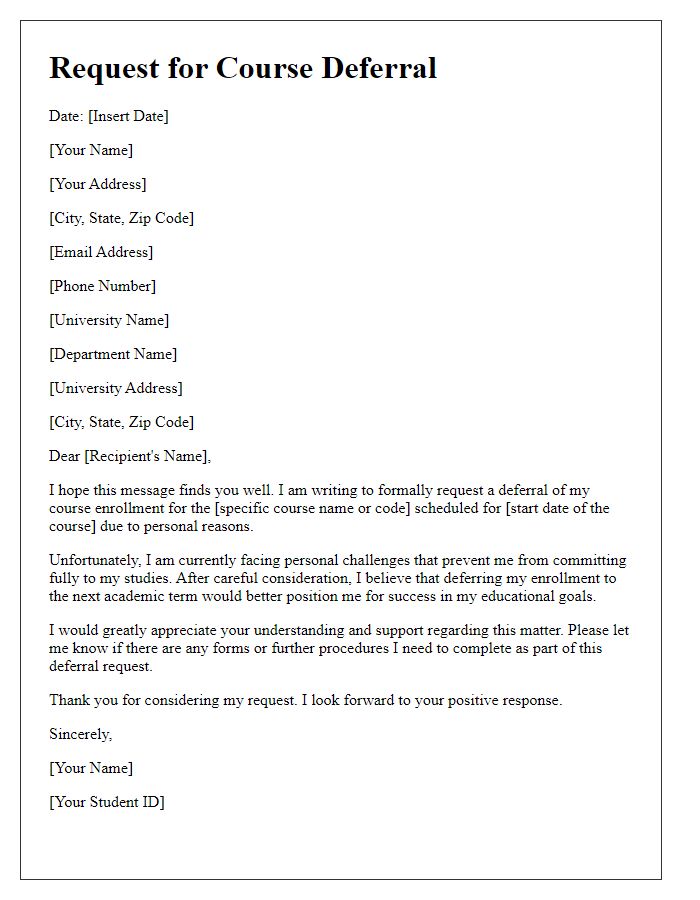
Letter template of application for deferral of university course for health reasons.
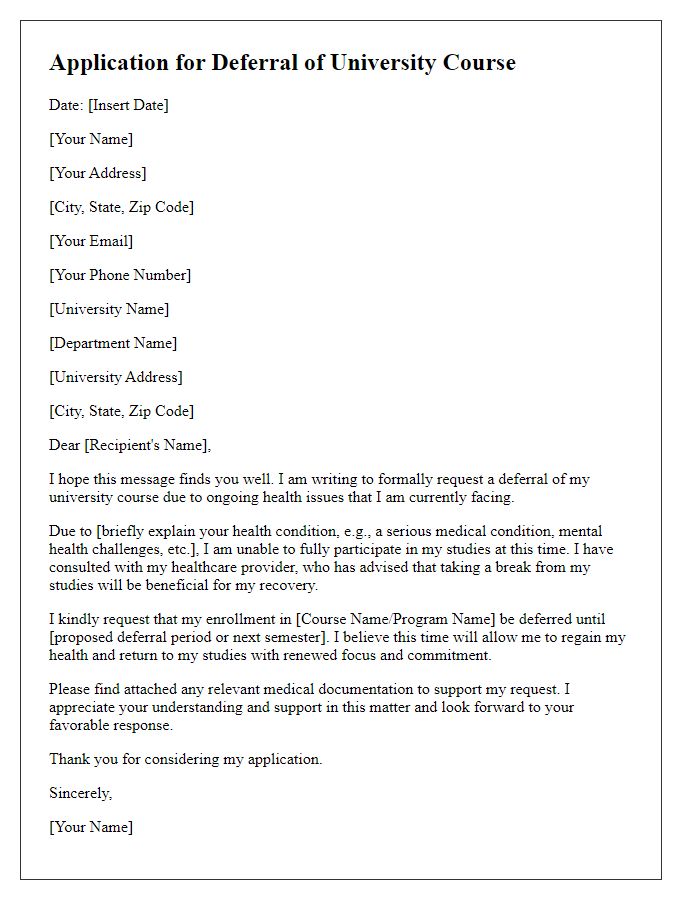
Letter template of notification for university course deferral due to work commitments.
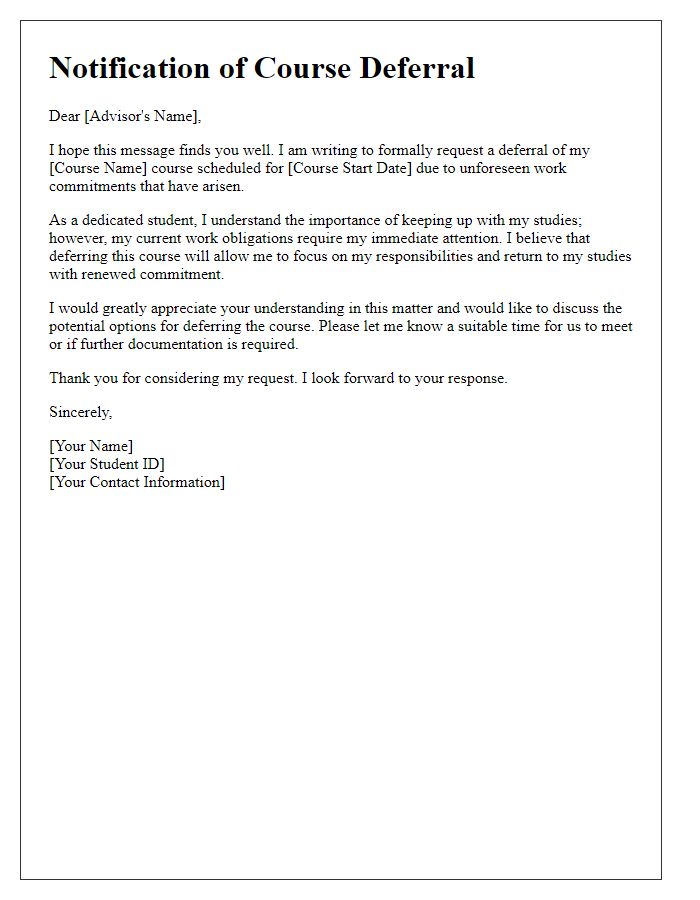
Letter template of appeal for university course deferral for academic reasons.
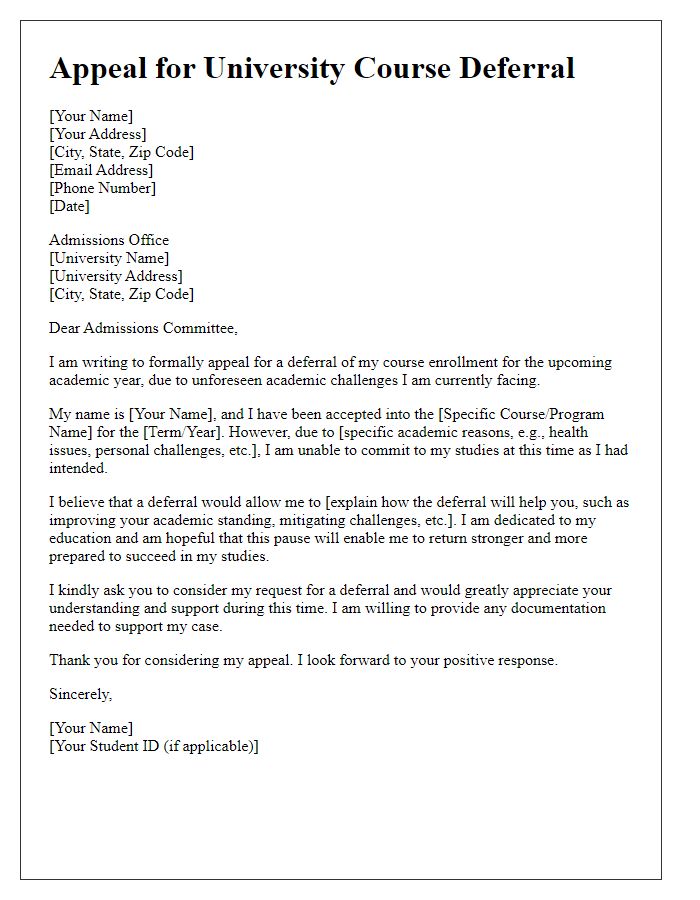
Letter template of explanation for deferring a university course due to family obligations.
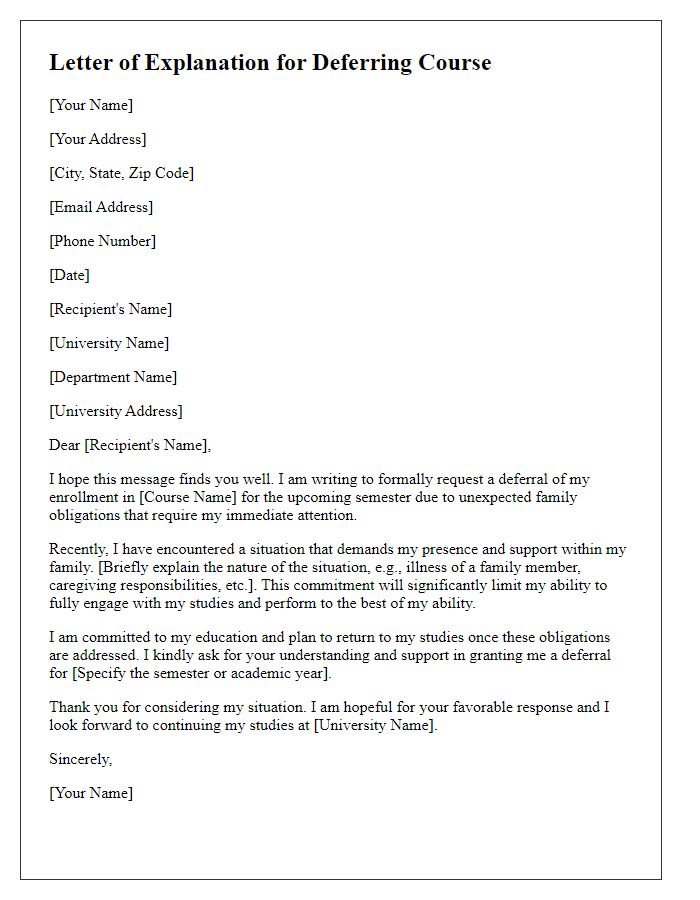
Letter template of formal request for a deferral of university course based on financial difficulties.
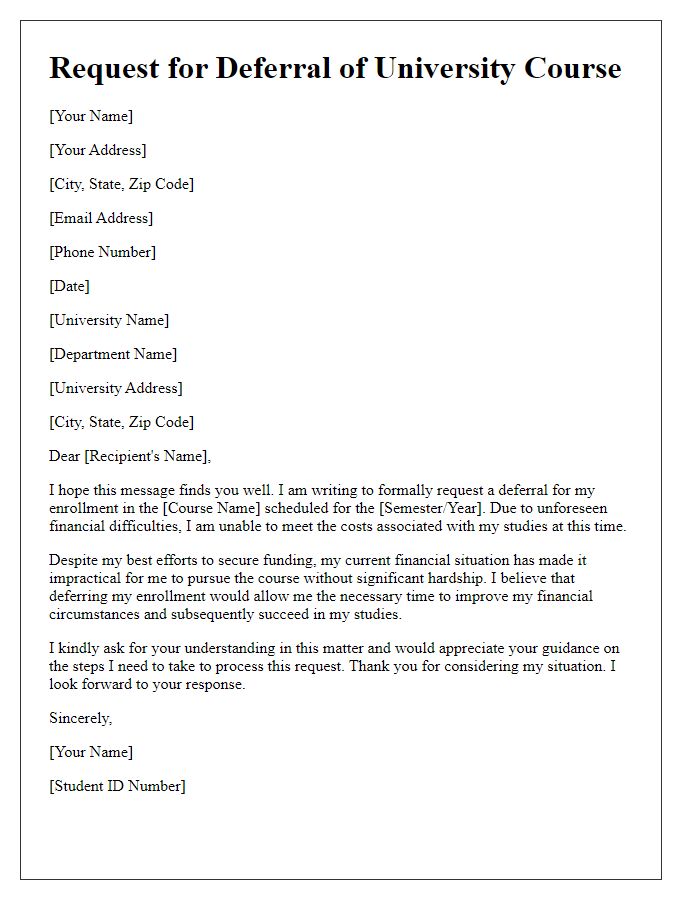
Letter template of submission for university course deferral related to travel opportunities.
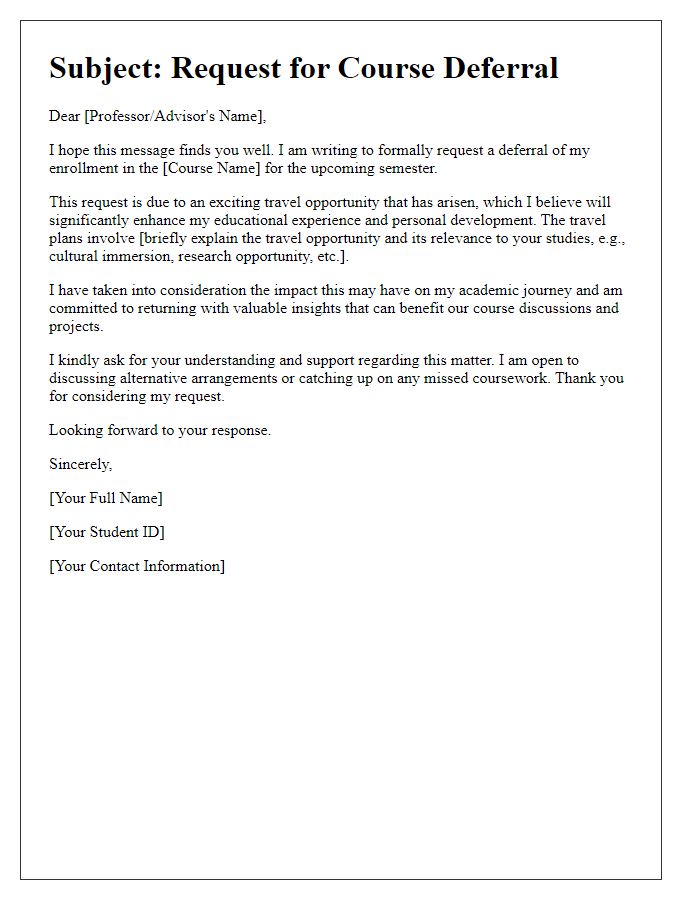
Letter template of inquiry regarding university course deferral procedures.
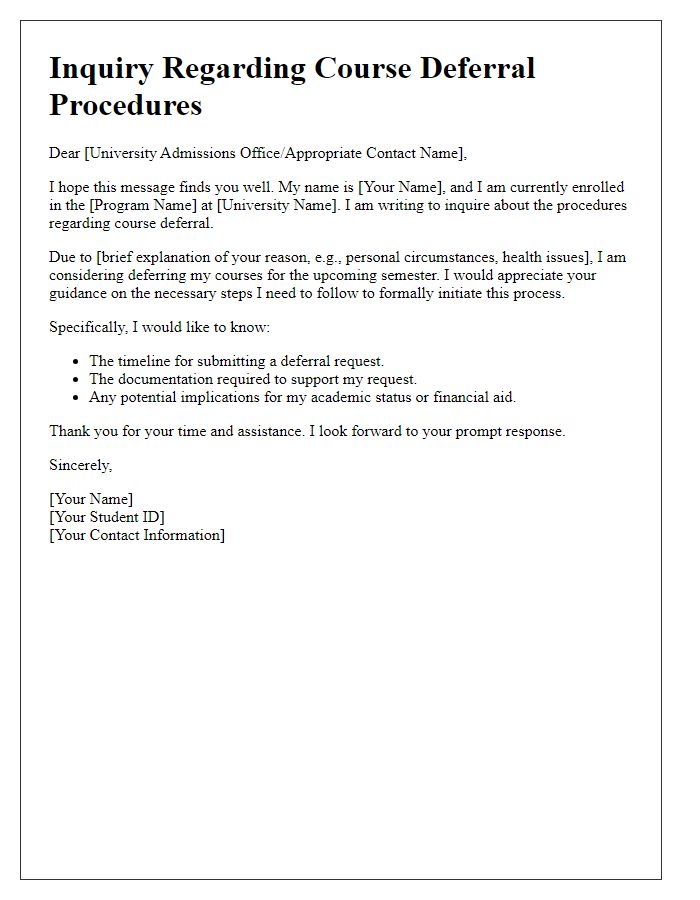
Letter template of confirmation for university course deferral accepted for international students.
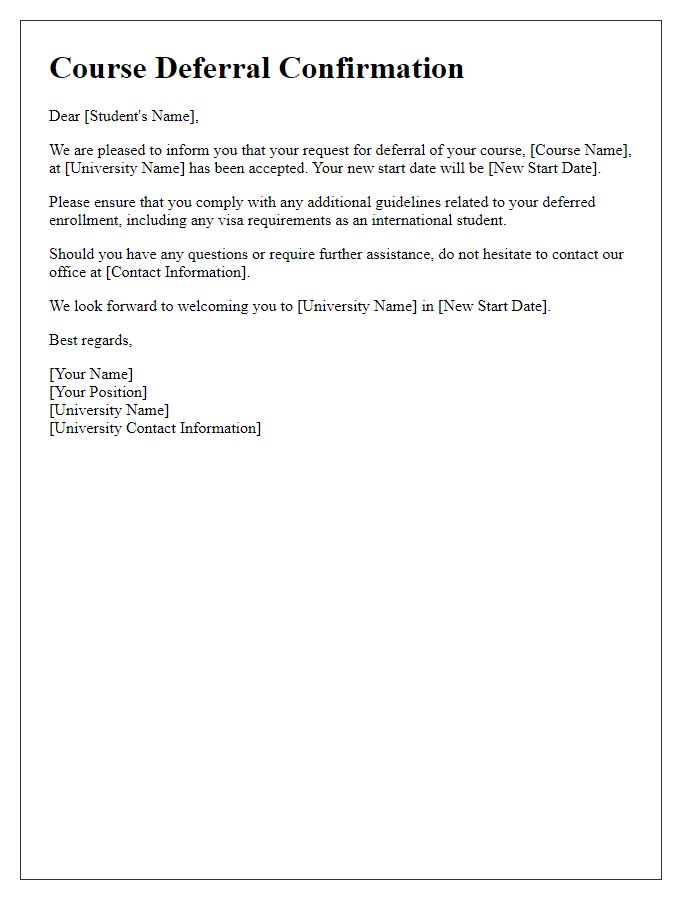

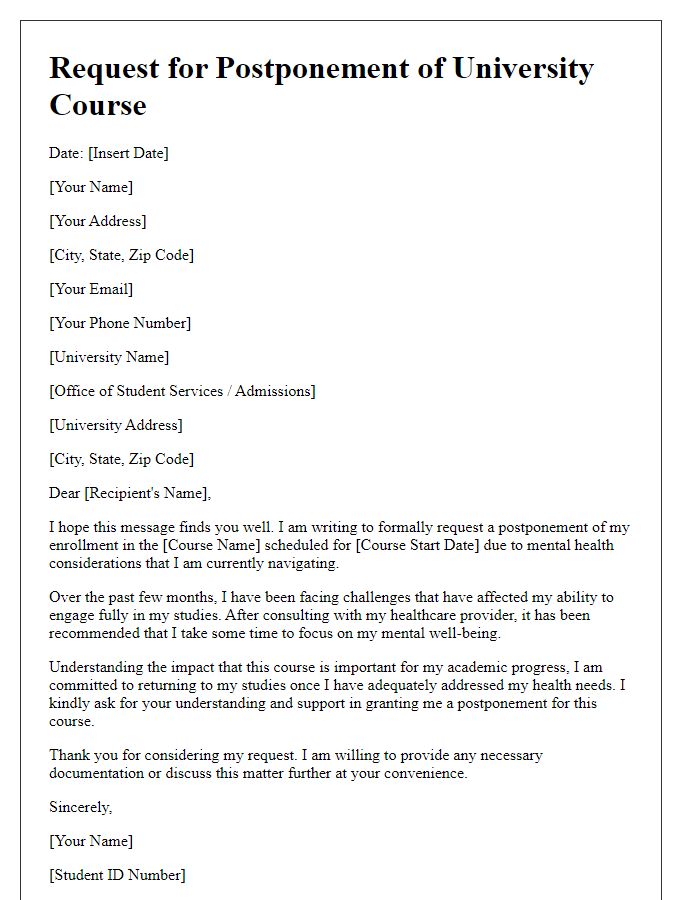


Comments